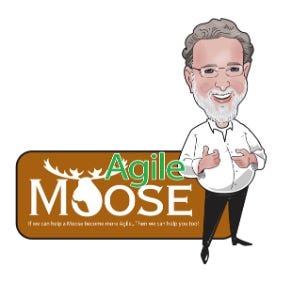The Downfall of Agile Certifications
And the Rise of Deep Learning and Practiced Skills
Shaun Thompson wrote an article entitled—Why Scrum Credentials Still Matter on LinkedIn on July 17th, 2025.
I’ve inserted a few snippets from the article below—
Article Lead – “You’re missing the point. Credentials aren’t the goal.”
Why I’m Writing This
I’m not here to defend empty credential collecting. I’m here to advocate for intentional learning.
To show how structure can create opportunity. To honor the role credentials have played in my own growth. And to invite those who’ve “been around” to help guide those who are just getting started.
Because Agile isn’t dying. It’s growing. It’s leaping across industries. It’s more necessary now than ever—and we’re the ones helping shape what it becomes next.
Gamifying Growth
The credentials I earned—what I jokingly called my “alphabet collection”—were never trophies. They were motivators. Each one represented a new skill, a deeper dive, or a broader view. And they connected me to others doing the same work.
Credentials are gamified growth. They give learners structure and a sense of progression. They help people chart a course through a field that can be difficult to navigate—especially when you're just getting started.
The Power of Community
…
But credentials alone won’t land the job. Your knowledge, your network, and your curiosity will. Credentials open the door. What you do once you walk through—that’s what matters.
As you might imagine, I have a few reactions I’d like to share.
First, Shaun's bias is clear. I would have preferred that he had invited a couple of outsiders to express their experience and views rather than an insider who makes a living from certifying and credentialing. It would have made the arguments more balanced for me.
Second, I want the remainder of my comments to focus on the entire Agile certification and credentialing world instead of Shaun and Scrum Inc.
I agree with Shuan’s rebalance from credentialing to intentional learning. But that said, I don’t think he went far enough. In this case, the “intentional learning” was mainly about pursuing certifications or credentials. I wish he had moved beyond that to how to acquire well-practiced and deep skills, which is something that multi-day certification classes do not provide. They’ve always been a beginning and not a middle or an end.
This is something that Geoff Watts is trying to do in his Agile Mastery Institute work, something that I’m doing in my Extraordinarily Badass Agile Coaching Masterclass work, or something that iCAgile is fostering in their Expert in Agile Coaching track. These extended collaborative learning experiences span months, not days, emphasizing collaborative practice and cohort-based community building.
They all focus on building tacit knowledge and experience rather than explicit knowledge. Our strength in the former will support us in the future, not merely classroom learning that only builds explicit knowledge.
I explore this difference here.
Finally, back to Shaun’s article, I think he avoided the market trend around certifications. My sense is that they are becoming less relevant and less important for employers over time. I don’t have deep analytics, but I speak to many trainers. All complain that their attendance numbers are way down and that they are cancelling a lot of classes—something that was unheard of five years ago.
While he spoke about intentional learning, he missed the opportunity to talk about deliberate practice and purposeful experience. You see, I feel the agile jobs of the future will minimize their explicit knowledge requirements and emphasize your tacit knowledge as your key differentiator. AI is a primary contributor to it.
Given this, I hope that all the certification providers will take note and begin to change the nature of their client knowledge-building efforts.
Back to the Future
We’re amidst a perfect storm in the Agile Community. There are tremendous job losses, undermining of Agile’s delivered value proposition, chaotic global political and economic conditions, and growing AI impact turbulence, all converging to make our futures uncertain. To use an old quote—
What got us here won’t get us there.
I’ll apply this to the old focus on multiday classes and certifications. I would argue that the current emphasis on micro-credentialling is in the wrong direction and deeply flawed.
We need to invest in deeper, human-based learning that might begin in a class, but certainly not end there. We need 3-6-9+ month learning programs and cohorts that allow learners to practice their knowledge. Only credentials and certifications based on this deeper learning will have any real future value.
I encourage you to read the following articles to round out the discussion.
Stay agile, my friends,
Bob.
Please Read These—
1. https://www.agile-moose.com/blog/2020/11/29/agile-coaching-i-have-a-dream
2. https://www.agile-moose.com/blog/2023/4/20/beyond-the-agile-certification-alphabet-soup
3. https://bobgalen.substack.com/p/scrum-alliance-coaching-certifications
Consider Reading These—
1. https://bobgalen.substack.com/p/please-stop
2. https://www.agile-moose.com/blog/2020/1/6/agile-10-years-past-present-and-future
3. https://bobgalen.substack.com/p/the-future-of-training
4. https://www.agile-moose.com/blog/2020/2/17/what-makes-agile-amp-scrum-training-effective
Whatever your role or experience, life in the agile space can be challenging today. Having someone to serve as your coach, as a sounding board, be a truthteller, and become a trusted partner on tap to leverage during those tricky bits can be helpful. That’s precisely where Agile Moose can help you.
We’re not just an Agile Coach, but a business domain expert, a personal advisor, an organizational design and development consultant, and a leadership coach and partner.
The moose brings over 35 years of technical and product leadership experience across a broad range of contexts. If you’re stuck and know it, reach out, as I can help.




Hi Bob
I agree that the longer 'professionalisation' of agile should be the way to go.
I say that as I suspect that the shallow value pool has run dry (sheep dip courses) and as I've experienced the ICagile expert, apprenticeships (for systems thinking in practice - similar in some ways to agile), and all sorts of other approaches incl. for the ICAEW (as I'm a professional accountant). Overall though, no skin in the game.
There are real issues to this skills problem though. In my experienced none of the above approaches work perfectly or long term. They all have flaws.
In particular, the amount of 'different' experience available in workplaces. You can only practice what works now for your current teams. Agile can be so political and organisationally specific...
Is mentoring a more appropriate offering? Possibly as part of something else.
I also think that the doom and gloom might be an opportunity for true agile to resurface.
"We are uncovering better ways of developing software by doing it and helping others do it." Agile has always (incl every value and principle) been about prioritising exploring and learning together.
So maybe the problem should be shared? Which is what you have done.
I hope that the community find a solution to this.
Thanks for sharing,
Stephen
Nice post, Bob. I always thought that most agile certifications were "paper" certifications, and not a certification that you can actually "do" agile. You are right, the cohort approach is hopefully the future route this takes. You have to know and be able to do agile for the certification to have any real worth.